What if better waste management could be a climate solution?
Across Argentina and Brazil, Delterra – through a project co-funded by the Climate and Clean Air Coalition (CCAC) – is proving just that: organics recovery and treatment can be a major driver of GHG reductions.
The urgency couldn’t be clearer. Methane’s warming effect is 86 times stronger than CO₂ over a 20-year period, and waste is the third largest source of human-caused methane emissions worldwide. Nearly half of all municipal solid waste is organic, making landfills a dangerous accelerator of climate change.
Latin America is particularly relevant: It is highly urbanized, has growing waste generation and faces major gaps in infrastructure for managing organics – making cities in the region both highly vulnerable to landfill emissions and strong candidates for transformation.
Below, we share how we’ve tested and continue to scale solutions in the region, starting with Argentina and Brazil.
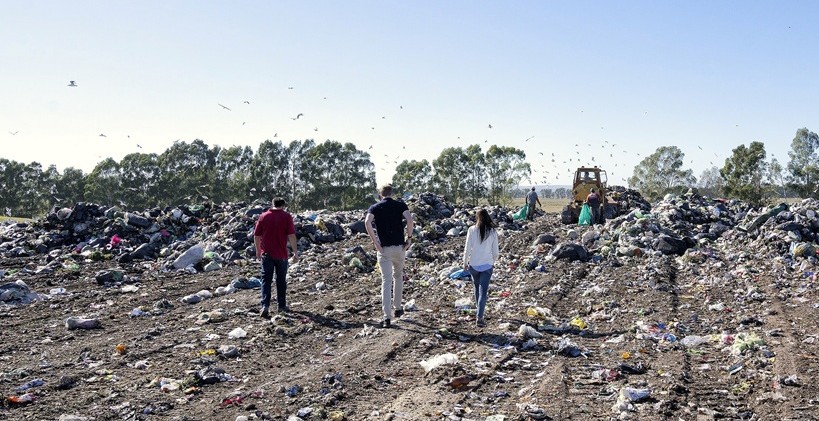
Delterra believes the best way to sustainably cut methane from organic waste is to transform entire city systems. That means working across the value chain – from how waste is separated at the source to how it’s collected, treated and ultimately reused – while also ensuring decent conditions for workers and engaging communities. To inform a path forward that is both scalable and tailored, we take a three-step approach:
- Understand the current situation – Every city is different, shaped by cultural, political and economic realities. We begin with a full diagnostic to establish a baseline, identify weak points and co-create strategies with local partners.
- Test solutions – Together with municipalities, communities and organizations, we run pilots that prove what works (and what doesn’t!) in practice. Our approach is human centered – tailoring solutions to the needs of people and the capabilities of each city.
- Iterate and scale – We build capabilities through trainings, peer exchanges and long-term planning so cities can continue improving long after we’ve handed all program ownership over. From there, we can use these “lighthouse” cities to scale across cities and regions.
Building on key learnings, this creates pathways for broader transformation, with shaping contracts and policy as a next step to achieve lasting impact.
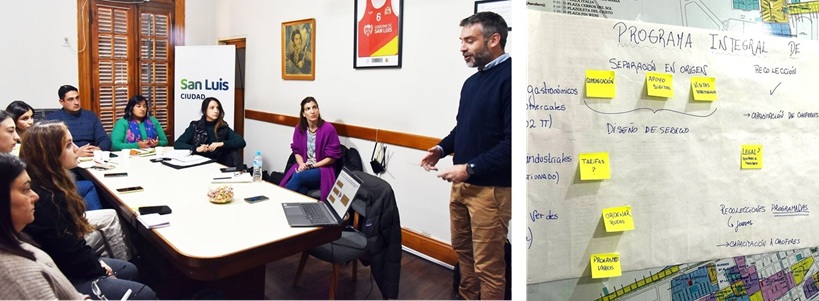
Implementing our Approach in Latin America
Starting in Argentina
In line with our systemic approach, our work on organics in Latin America began with a careful selection of cities in Argentina. Given our previous recycling work in the country, we had already developed key relationships with stakeholders in several cities including Buenos Aires – but we sought out other municipalities that reflected different city types, so that the solutions we tested could be adapted and expanded more widely.

This selection process led to Buenos Aires, San Luis and Rafaela, where we built relationships, established emissions baselines and co-created strategies with local stakeholders based on a deep understanding of each landscape.
The pilot in Buenos Aires City made it possible to identify problems, optimize collection routes, and consider the scalability of a digital solution.
Buenos Aires is especially relevant: Satellite data shows that its CEAMSE Norte III landfill is a major global methane hotspot – accounting for half of the entire city’s landfill methane emissions[1]
Satellite data shows that its CEAMSE Norte III landfill is a major global methane hotspot – accounting for half of the entire city’s landfill methane emissions
A short summary of our proofs of concept, capability building, workplan creation and local collaboration can be found below:
- In Buenos Aires: We reconfigured an organic waste collection route in the Caballito neighborhood for large food waste generators, making collections 30% more efficient. In parallel, we helped businesses in that route use a new digital system that increased the organics recovered by 31%. We also trained and equipped the city government to run the program on their own. Today, they’ve built their own dashboard to monitor routes, solve problems and plan the next phase of their waste system – giving them full ownership of the progress going forward.
- In San Luis: We piloted composting organic waste from an industrial facility. Instead of building from scratch, we worked with the infrastructure and tools already in place – making minor improvements to collection and designing an engagement strategy that fit the local context. This proved that industrial generator programming could be the first step toward a broader organics strategy. The pilot gave the municipality a clear roadmap, positioning the city government as the coordinator of a scalable and cost-effective composting system.
- In Rafaela: We launched a home composting program that engaged households – the first step toward a city-wide organics system. While building a large-scale program takes time, this concept created early alignment among key local stakeholders and laid the foundation for expansion. Together with the city team, we co-created a blueprint for implementation, trained everyone involved – from field agents to officials – and set up metrics to track progress. We continue to support the city during this process so that when the final results are in, we can support them in distilling relevant learnings and owning the next steps toward creating a city-wide program.
The Impact
The outcomes are tangible. Greater volumes of organic waste from both residential and commercial sources are diverted from landfills with lower collection costs per ton, better-quality material for composting and stronger municipal capacity to run programs themselves.
“Working with Delterra helped us organize and prioritize,” said Antonela Kern, Head of Environmental Education for the Rafaela Institute for Sustainable Development. “We were able to focus on what we want to do and how we’re going to do it, planning and allocating resources. We can also predict the impact we want to have, how to measure it, and how to interpret the results to identify areas for improvement and long-term strategies.”

These proofs of concept also demonstrate what works and what doesn’t, allowing Delterra to build playbooks that will make expansion faster and more affordable with each new city. Beyond scaling, our collaboration with cities also set the foundation for creating a circular economy.
“Thanks to working with Delterra, we’re not only achieving better results in organic waste recovery, but we’ve also found a way of working and connecting with other areas of government that now allows us to project our plans on a whole new scale, confident that we have what it takes to achieve them,” Andrea Paiz, Buenos Aires’s New Technologies Operations Manager, said.
As we piloted elements of circular waste management, we created momentum for cities to move toward ambitious plans for circularity. Critically, we built trust with decision makers and stakeholders for future collaboration and proposals for bold goals.
“Thanks to working with Delterra, we’re not only achieving better results in organic waste recovery, but we’ve also found a way of working and connecting with other areas of government that now allows us to project our plans on a whole new scale, confident that we have what it takes to achieve them,” – Andrea Paiz, Buenos Aires’s New Technologies Operations Manager
Moving into Brazil
With our foundation in Argentina, we expanded into Brazil – where less than 1 percent of organic waste is treated despite national mandates for reform. With more than 5,000 cities in the country representing different regional contexts, it offers the perfect testing ground for scaling across Latin America. Building on our learnings in Argentina, we developed city archetypes that would not only allow us to rapidly learn what is transferrable to different Latin American locations, but also have potential for future organics work.
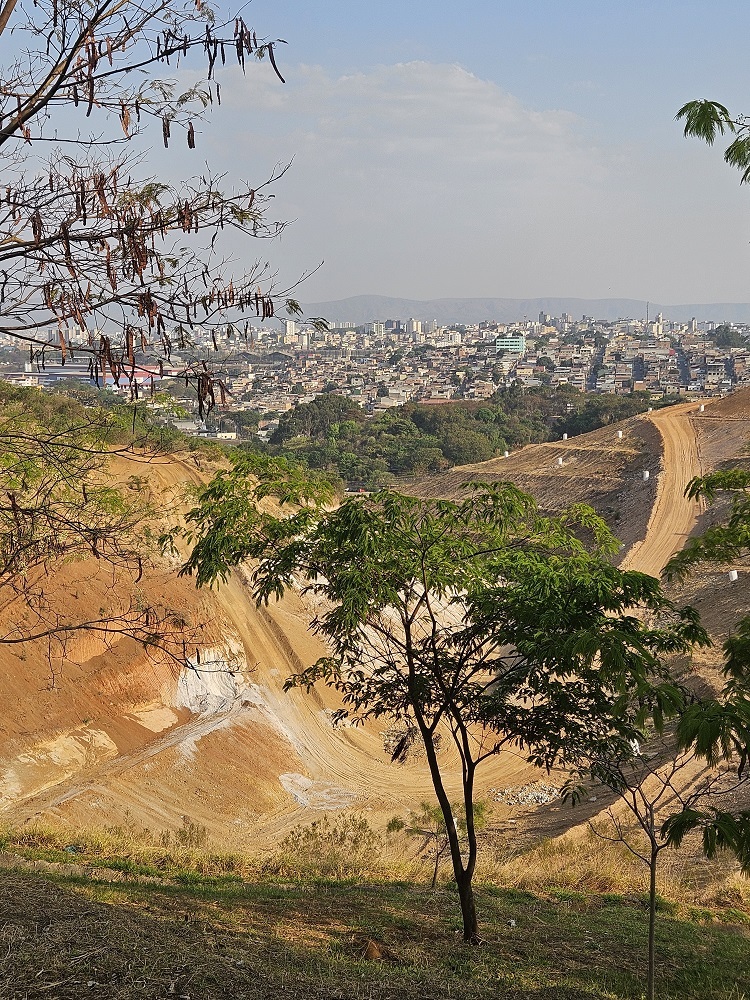
Our rigorous selection process of cities led us to begin with Contagem, Arapiraca and Florianópolis. For both Arapiraca and Contagem, we’ve already established emissions baselines. We’ve also designed an organics diversion workplan for Arapiraca, focused on large generators (e.g., public market, supermarkets) and cooperative-led action. Next, we are planning a full-scope diagnosis for all three cities that will allow us to deliver recommendations on where and how they can improve organic waste recovery. This will prime us to start designing, piloting and planning strategies to scale.While launching programs in a new market has proven to be a challenging, our previous experience and unique approach allow us to run a more efficient selection process and accelerates our ability to effect change. By leveraging our experience from our team in Argentina, we’ve been able to engage with cities quickly and leap frog to action in a new country as we expand across Latin America.
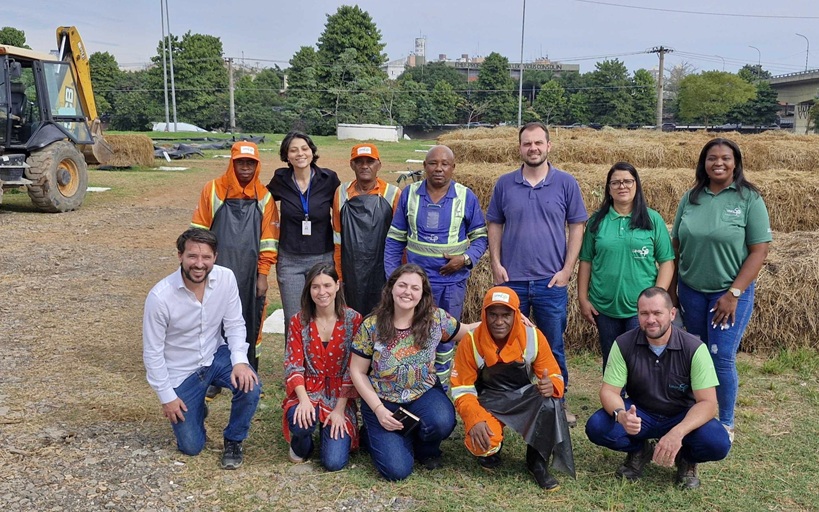
Where we go from here
The work we’ve completed in Argentina and Brazil has not only proven what works, but has built local capability, equipped municipalities with data systems and tools to monitor and refine their services and established the know-how for cities to carry forward results independently.
Building on city-level results, the next step we are exploring is how these lessons can inform state and national policies. By translating local successes and lessons learned into enabling frameworks, countries could accelerate methane reductions far beyond what any single city could achieve on its own. In the long run, real success will depend on how local and national governments shape regulations, contracts and incentives to support a new vision for waste management and organics recovery.
Through this pathway, we move from local pilots to regional transformation. The end goal is clear: a waste system that no longer fuels climate change, but instead puts nutrients back into circulation, drives cleaner air, healthier communities and a more resilient economy.
[1] NewScientist – Half of Buenos Aires’s methane emissions may come from one landfill
Webinars: Innovators in the field
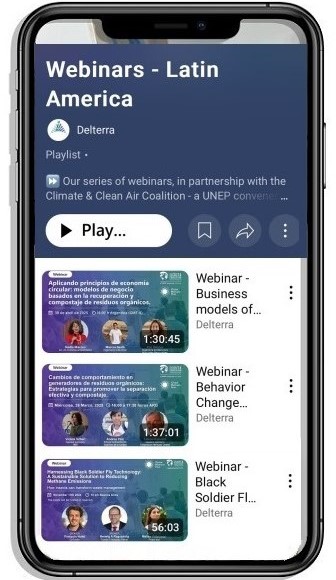 Delterra, with the Climate & Clean Air Coalition and the Global Methane Hub, released five webinars on reducing methane emissions in Latin America, now available on our YouTube channel. We thank the Argentine Composting Association for their participation.
Delterra, with the Climate & Clean Air Coalition and the Global Methane Hub, released five webinars on reducing methane emissions in Latin America, now available on our YouTube channel. We thank the Argentine Composting Association for their participation.
Reducing methane, especially by diverting organic waste from landfills, is essential to addressing climate change.
We are working in collaboration with these partners on organic waste projects in the Global South, leveraging Delterra’s local connections to support cities in these efforts.
🎬 Don’t miss the chance to gain valuable insights from innovators in the field across Latin America. Click Play ➡️
Subscribe & share
Be sure to subscribe to our newsletter. And share with a friend to get real world insights and practical actions for a circular economy!
